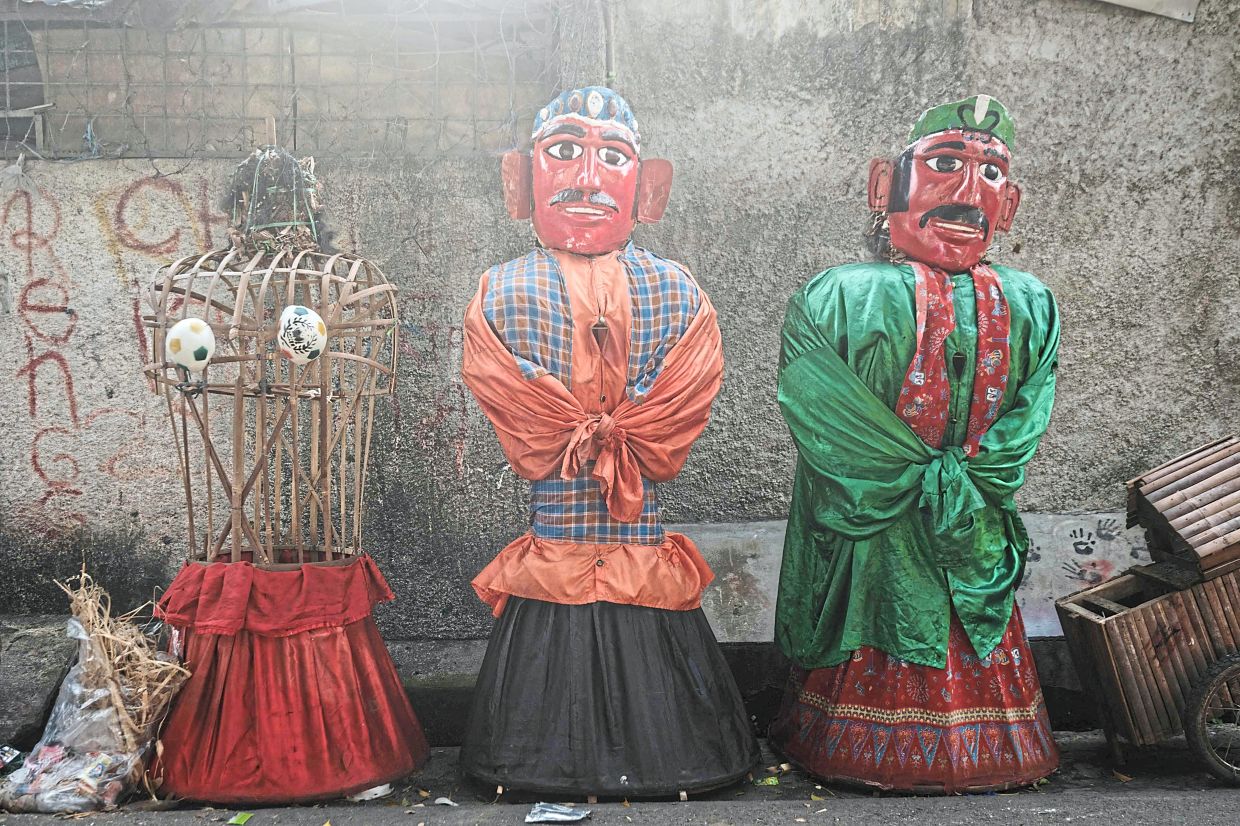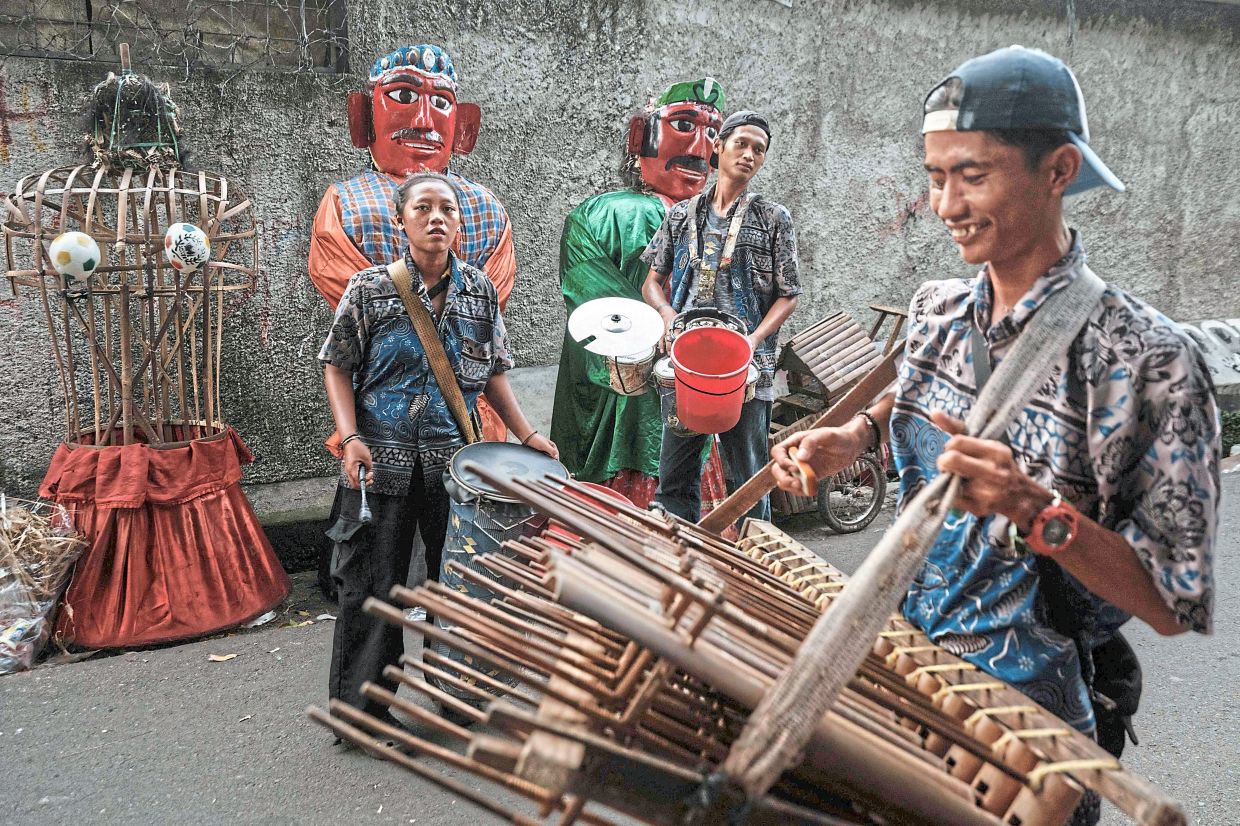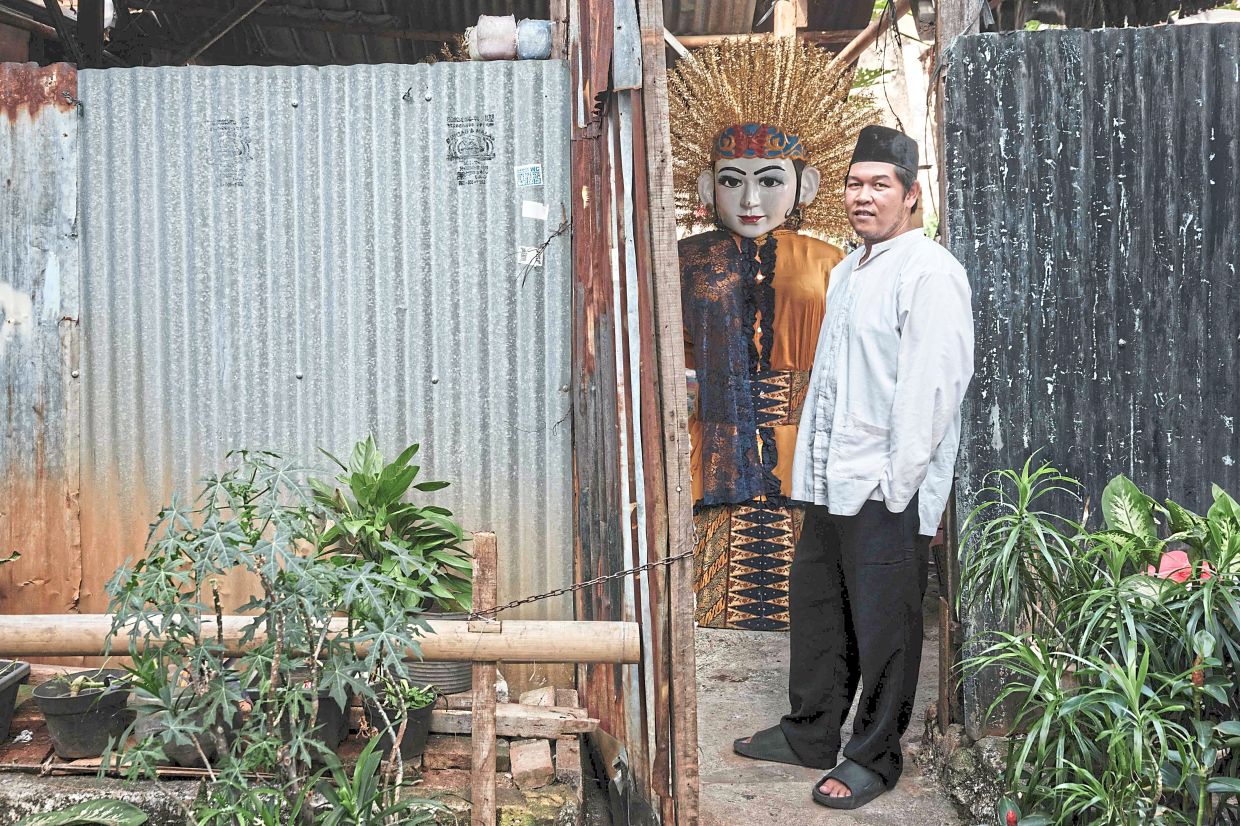Once revered and considered sacred, the giant-headed puppet, known as ondel-ondel, is now a dilemma and controversy in Jakarta. Photo: AFP
In the sweltering streets of Jakarta, Indonesia, buskers carry towering, hollow puppets and pass around a bucket for donations. Now, they fear becoming outlaws.
City authorities say they will crack down on use of the sacred ondel-ondel puppets, which can stand as tall as a truck, and they are drafting legislation to remove what they view as a street nuisance.
Performances featuring the puppets – originally used by Jakarta’s Betawi people to ward off evil spirits – will be allowed only at set events.
The ban could leave many ondel-ondel buskers in Jakarta without a job.
“I am confused and anxious. I fear getting raided or even arrested. But what can I do? I need money to eat,” said Adi Sutisna, a 26-year-old Jakarta native who works as an ondel-ondel busker.
Adi, who only graduated from elementary school, has been working as an ondel-ondel busker for seven years, earning US$7 (RM29.70) on a good day to provide for his wife and five-year-old daughter.
Ondel-ondel is the pride of the native Jakarta tribe, the Betawi people.
Traditional performances were accompanied by instruments for festive and celebratory events, including weddings, circumcisions, and welcome ceremonies for honourable guests.
Cyril Raoul Hakim, spokesman for Jakarta governor Pramono Anung, said that the ban was still being drafted with “the preservation of Betawi culture” in mind and it would be put to legislators soon.
“We hope it will be passed not too long from now,” he said.
For survival
Over time, ondel-ondel have been increasingly used by buskers who sway the puppets to music from loudspeakers, seeking money on the roadside, at traffic lights, and in the alleyways of Jakarta’s densely populated neighbourhoods.
The city administration has long wanted to ban ondel-ondel busking, arguing that the practice sullies the dignity of the cultural icon.
Bureaucrats believe roadside busking undermines the puppets’ cultural significance.
But many Jakartans rely on the entertainment to bring in much-needed cash.
According to government data, the number of people living below the poverty line in metropolitan Jakarta – a megalopolis of 11 million people – was up from 362,000 in 2019 to 449,000 as of September 2024.
The Central Statistics Bureau says the poverty line in Indonesia in 2025 is just over one dollar a day.
“The ondel-ondel is heavy; it is very hot inside,” said Adi.
“But I do it anyway because if I don’t, my wife and my kid won’t be able to eat.”
For the right reasons
The planned ban has left authentic ondel-ondel performers and makers torn about the preservation of their culture and the plight of the buskers.
Performers such as Fadillah Akbar believe the cultural symbol must be revered, and should not be used to beg for money.
“The problem is that they beg on the street – that’s a disturbance, and it bothers my soul,” said the 33-year-old ondel-ondel artist.
He believes ondel-ondel must come in pairs, a woman and a man, and be accompanied by traditional live music instead of a recorded song playing on loudspeakers.
“Of course, I feel bad for the buskers, especially since I know many of them, but it is a cultural icon whose dignity must be upheld,” Fadillah said.
The head of Jakarta’s public order agency, Satriadi Gunawan, said ondel-ondel busking disturbed road users with loudspeakers and requests for money.
“In Betawi culture, upholding ondel-ondel’s dignity is important, and now it is often used to beg for money,” he said.
But some historians disagree, saying limiting the puppet presence on Jakarta’s streets could hurt efforts to keep the dwindling tradition alive.
“Banning ondel-ondel busking in the name of culture signifies their lack of understanding for tradition,” said Jakarta-based historian J.J. Rizal.
“It proves that not only does the city government not understand culture, but it also endangers the preservation of art.” – AFP








